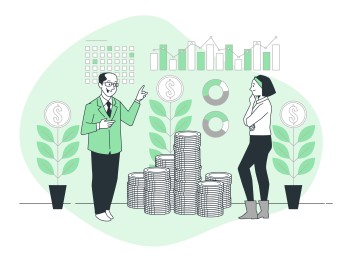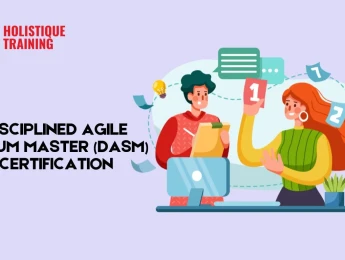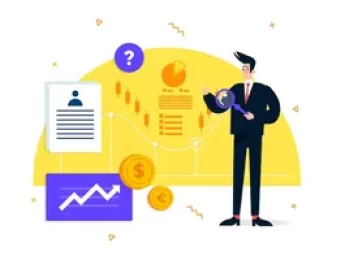The concept of sustainability is relatively new, but that does not mean it is unimportant. An organisation or business changing its practices to be sustainable is becoming increasingly necessary to stay ahead in its respective markets.
The transition into sustainability is not simple. A considerable amount of strategy and planning is required for successful execution and implementation. The business needs to carefully assess its current standing in all factors, including financial capabilities and maintaining its supply chain. There are many challenges to be faced when attempting to be sustainable, and thorough knowledge and preparation are crucial.
The main way to become sustainable is to adjust energy sources. The transition from non-renewable to renewable sources is highly effective; however, it does come with risk. There is a fine balance between being fully energy efficient and maintaining maximum effectiveness for daily functions. With the correct planning, implementation methods, and attentive monitoring, the business can thrive with better sustainability practices and ideal energy efficiency.
Upon completion of this course, participants will be able to:
- Understand the importance of sustainability for modern organisations.
- Assess existing functions and measure their sustainability for short and long-term practices.
- Review the internal and external influences in achieving sustainable practices.
- Evaluate how to balance efficiency and sustainability within the organisation.
- Effectively design and create plans detailing personal and organisational goals for sustainability.
- Establish strategies to meet organisation and consumer needs through sustainability.
- Perform financial analysis for energy efficiency proposals.
- Apply project management concepts to energy efficiency projects.
This course is designed for anyone within an organisation in charge of decision-making who wishes to make typical functions more sustainable. It would be most beneficial for:
- Project Managers
- Operations Managers
- Energy Engineers
- Finance Analysts
- Business Strategists
- Energy Managers
- Strategy and Planning Directors
- Sustainability Personnel
This course uses a variety of adult learning styles to aid full understanding and comprehension. Participants will review real-world case studies of established businesses to highlight key influences in their transition to sustainable and energy-efficient practices.
Participants will be granted ample opportunities to understand the taught concepts thoroughly. Through a combination of discussions, video material, presentations and practical activities, participants can fully develop practical skills and understand the knowledge. Participants can create their own action plans for energy efficiency about their specific roles to demonstrate what they have learned.
Day 5 of each course is reserved for a Q&A session, which may occur off-site. For 10-day courses, this also applies to day 10
Section 1: Energy and Sustainability
- Different energy profiles regionally and worldwide.
- The major types of energy sources.
- Review the triple bottom line theory and how it’s utilised within a business.
- Aligning sustainability with the triple bottom line.
- The interaction between energy and sustainability.
- Evaluating current trends relating to energy.
- Finding the balance between energy efficiency and sustainability.
Section 2: Strategic Management
- The vitality of effective strategic management.
- How the concepts of strategic management developed over time.
- Porter’s three strategic directions – cost-leadership, differentiation, and focus.
- Environmental analysis – internal and external influences.
- Strategy formulation, planning and implantation.
- Utilise different methods to strategize ways of improving sustainability.
Section 3: Project Management
- Defining the meaning of ‘project.’
- The project lifecycle.
- The process of initiation, planning, execution, and monitoring.
- Establishing projects surrounding energy efficiency and sustainability.
- Assessing how sustainable practices will influence the lifecycle of related and unrelated projects.
- Methods of monitoring project performance throughout the beginning and post-execution stages.
Section 4: Financial Analysis of Energy Efficiency
- The various sources and types of data in energy business.
- Measuring central tendency.
- Measuring spread and data distribution.
- Utilising different applications to record and track financial data.
- Understanding the marginal cost of energy.
- Balancing financial capabilities with an organisation’s goal.
- Maintaining financial risk management throughout the transition to sustainable practices.
Section 5: Supply Chain Management
- What processes are involved within the supply chain.
- The evolution of the supply chain.
- Why supply chain management is necessary.
- How sustainability can be integrated within the supply chain.
- Methods of making the distribution and transport processes function at maximum energy efficiency.
Upon successful completion of this training course, delegates will be awarded a Holistique Training Certificate of Completion. For those who attend and complete the online training course, a Holistique Training e-Certificate will be provided.
Holistique Training Certificates are accredited by the British Assessment Council (BAC) and The CPD Certification Service (CPD), and are certified under ISO 9001, ISO 21001, and ISO 29993 standards.
CPD credits for this course are granted by our Certificates and will be reflected on the Holistique Training Certificate of Completion. In accordance with the standards of The CPD Certification Service, one CPD credit is awarded per hour of course attendance. A maximum of 50 CPD credits can be claimed for any single course we currently offer.
- Course Code IND01-135
- Course Format Classroom, Online,
- Duration 5 days














